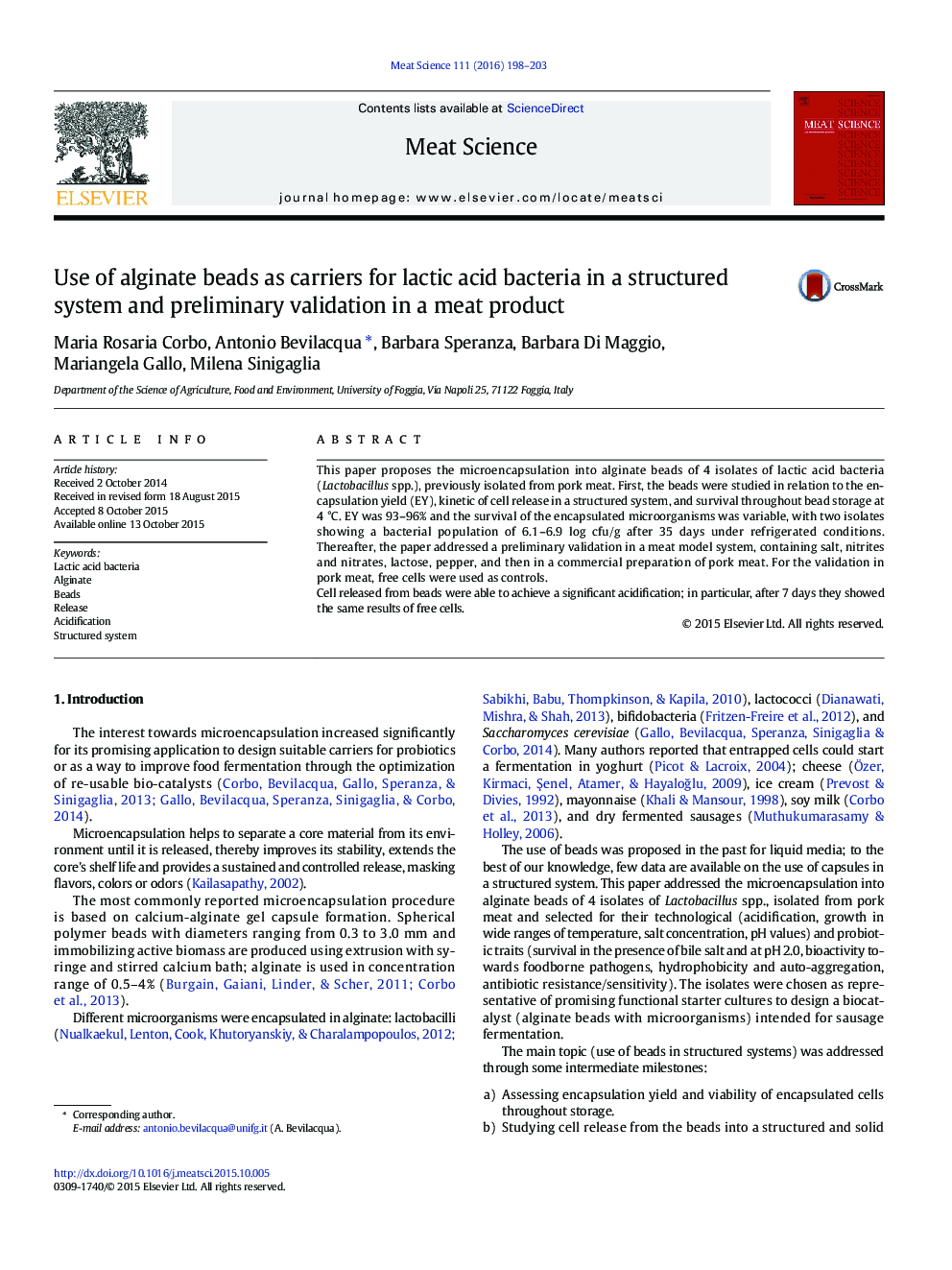| Article ID | Journal | Published Year | Pages | File Type |
|---|---|---|---|---|
| 2449591 | Meat Science | 2016 | 6 Pages |
•Lactic acid bacteria from meat were loaded into alginate beads.•The beads released the entrapped cells in a structured system.•The released cells were able to reduce the pH of a meat preparation.
This paper proposes the microencapsulation into alginate beads of 4 isolates of lactic acid bacteria (Lactobacillus spp.), previously isolated from pork meat. First, the beads were studied in relation to the encapsulation yield (EY), kinetic of cell release in a structured system, and survival throughout bead storage at 4 °C. EY was 93–96% and the survival of the encapsulated microorganisms was variable, with two isolates showing a bacterial population of 6.1–6.9 log cfu/g after 35 days under refrigerated conditions. Thereafter, the paper addressed a preliminary validation in a meat model system, containing salt, nitrites and nitrates, lactose, pepper, and then in a commercial preparation of pork meat. For the validation in pork meat, free cells were used as controls.Cell released from beads were able to achieve a significant acidification; in particular, after 7 days they showed the same results of free cells.
